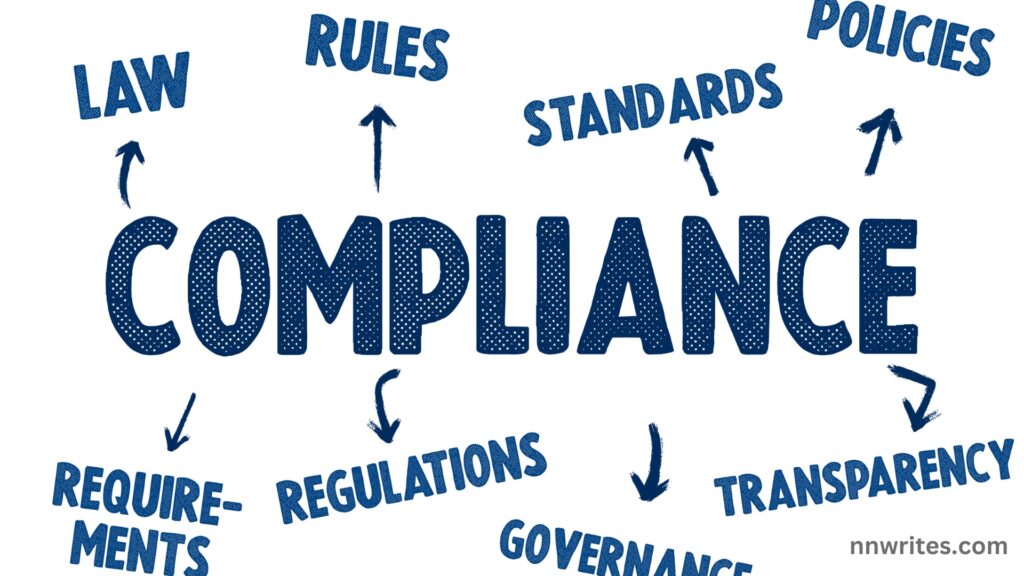EMBRACING INNOVATION: THE RISE OF Banking FintechZoom, The union of technology and finance, often referred to as fintech, has led to a fresh era of technological innovation within the banking industry. Fintech startups, thanks to their innovative and efficient strategies, have challenged the norm, forcing traditional banks to evolve or face the risk of becoming outdated. From mobile banking applications and digital wallets to mobile banking apps, Fintech businesses have created a variety of products that address consumers’ changing needs, providing convenience, efficiency, and access like never before.
Fintech’s rise within banking has revolutionized banking services, removing the barriers to entry and providing opportunities to people and companies alike. With just a few clicks on their smartphones, consumers are now able to perform a broad array of banking functions,, including transferring funds and managing their investments, within the privacy of their homes. This decentralization of banking empowers consumers, giving them more control over their money and a more diverse banking system.
Also read: THE Entire Information TO FINTECHZOOM LCID STOCK 2024
REINVENTING THE CUSTOMER EXPERIENCE:

In today’s world of financial fintechzoom, the user satisfaction reigns supreme. Fintech companies have raised their level by offering highly individualized and customer-centric services that are tailored to the individual requirements and preferences of each individual. With advanced data analytics as well as algorithms that learn banks can analyse huge amounts of data from customers to collect important information about their behaviour as well as their preferences and their financial objectives.
The data-driven strategy allows banks to provide tailored solutions and services that provide specific recommendations and guidance to benefit customers make better decision-making. It doesn’t matter if it’s recommending the best savings plan, or offering personalised portfolios for investments Banks are making use of technology to provide hyper-personalized experiences which resonate with their customers at a higher level. By prioritising customer needs and wants, banks can improve customer relationships, boost customer loyalty, and distinguish them from competitors in an extremely competitive marketplace.
THE POWER OF AI AND MACHINE LEARNING
At the core of banking fintechzoom lies the revolutionary capabilities of artificial intelligence (AI) and machine learning. These tools have transformed the way banks analyse data, spot patterns, and streamline procedures, which has led to efficiency and innovation throughout the entire. From fraudulent detection to credit scoring the AI-powered algorithms have enabled banks to improve their operations while reducing costs and reduce risk in real-time.
One of the areas where AI as well as machine learning has made major advances is in customer support. Virtual assistants based on AI are adept at handling a vast variety of inquiries from customers with instant support and assistance 24/7. Utilizing natural language processing as well as an analysis of the sentiments, digital assistants can understand and address customer inquiries in a human-like manner, improving the customer experience in general and decreasing wait time.
Also Read: FINTECHZOOM NVDA STOCK Path FOR Economic REVOLUTION 2024
SECURITY IN THE DIGITAL ERA: PROTECTING TRANSACTIONS AND DATA

In today’s world of banking and fintech, it is essential to ensure security, particularly about bank transactions and financial transactions. Due to the increasing popularity of internet-based banking and mobile payments, people are more worried about the security and security of their financial and personal data. Fintech firms have addressed this concern by taking strong security measures and using the latest technologies to defend against fraud and cyber-attacks.
One of the technologies which has been gaining popularity in recent times is the blockchain. The decentralized ledger technology provides security and transparency for recording transactions. It makes it nearly impossible for criminal people to interfere with the information. With the benefit of blockchain technology, banks can increase the security and reliability of their transactions with customers, giving customers more security and comfort when it comes to banking.
Also Read: Future Fintechzoom Life Insurance 2024
Investment deregulation: from Wall Street to Main Street
The past was when investing in stocks was only for the rich elite with expensive charges and intricate processes acting as barriers to the common investor. But, since the introduction of fintechzoom in banking investment has now become accessible to everyone and allows people from every walk of life to take advantage of the opportunities to build wealth through stocks.
Robo-advisors are a good example. They have become a favoured investment tool that offers automatic portfolio management as well as investment guidance at much less cost than typical financial advisers. Utilizing AI and machine learning techniques they can build diversified portfolios of investments that are tailored to each individual’s preferences in terms of risk and financial goals which makes investing more affordable and cost-effective for everyone.
THE RISE OF DIGITAL CURRENCIES: EXPLORING THE FUTURE OF MONEY
Recently, digital currencies like Bitcoin and Ethereum have captured the interest of people everywhere, offering an open, decentralized option to fiat currency. Though still in its early stage, the rise of digital currencies will have profound implications regarding the future of finance and banking as it challenges the dominant position of central banks and banks.
Blockchain technology, the basic technology that powers digital currencies, provides a safe and transparent method of recording and confirming transactions, removing intermediaries as well as reducing the cost of transactions. Peer-to-peer networks allow users to directly interact with one another, without the need for traditional financial institutions as well as their costs and lags. When digital currencies continue to procure acceptance and popularity as they receive acceptance and adoption, they can transform the financial system as well as democratize access to financial services on an international scale.
Also Read: FintechZoom Luxury Watches 2024 Will Take Your Style to the Next Level
NAVIGATING REGULATORY CHALLENGES: BALANCING INNOVATION AND COMPLIANCE

Although the growth of technology that is banking-related has provided enormous potential, it brought regulatory problems both for fintech firms and banks as well. Technology continues to advance faster than the regulatory process, authorities are faced with balancing between encouraging innovation and protecting consumer interests. Regulators like Know Your Customer (KYC) and Anti-Money Laundering (AML) are intended to stop financial crimes and safeguard consumers. However, they may also place obligations for compliance on banks as well as Fintech companies.
Additionally, the international nature of fintech poses extra issues, since the companies are operating in many areas, each having different regulations and guidelines. To assure regulatory compliance, the ever-changing and complex world of fintech is a team effort among financial institutions, fintech companies and regulators to warrant that innovation doesn’t get hindered as well as ensure the stability and integrity in the system of finance.
Also Read: 15 Business AI Tools from ABC-Media.net in 2024
The Role Of Collaboration: Fostering Innovation Through Partnerships
In the crowded world that is the banking industry fintechzoom is gaining momentum as an essential strategy to drive forward with innovation and keeping in the forefront of technology. Through partnering with fintech companies and tech companies traditional banks can benefit from their experience and speed while leveraging the innovative strategies they have developed to improve the quality of their offerings as well as raise the experience of customers.
Similar to fintech businesses, fintech startups can gain from partnerships with banks that are established, and gain access to their huge customers, facilities, and expertise in regulation. Strategic partnerships allow both fintech and banking institutions to enhance the strengths and weaknesses of each other creating a symbiosis that boosts innovation and offers higher value to clients.
EXPECTING TRENDS AND DIFFICULTIES IN THE FUTURE OF BANKING
Looking ahead to the future of fintechzoom, a banking technology we can see that technology is constantly evolving.
ALSO READ : NASDAQ FINTECHZOOM: THE FUTURE OF FINANCE IN 2024
FREQUENTLY ASKED QUESTIONS (FAQS) ABOUT OPEN BANKING

1. Which banks are open for banking?
Several banks across the globe have embraced open banking in varying degrees. In the UK For instance major banks like Barclays, HSBC, and Lloyds Banking Group have embraced open banking policies, which allow third-party companies to access the financial information of their customers safely with their permission. In addition, banks across different regions, such as Europe as well as Australia as well, are using open banking structures to encourage competition and new ideas in the field of finance.
2. Do open banks display the transactions?
Open banking permits third-party companies to view the transaction information of a client by obtaining their express permission. It means that approved third-party providers like fintech firms and other banks, may look up a customer’s transaction log through their accounts at banks, with details like the dates, amounts as well as the beneficiary of each transaction. However, it’s crucial to keep in mind that the customer can control which third entities can view their data and what they can use it for to warrant privacy and security.
3. Do banks have to be open?
The process of implementing open banking is different from one country to the next as well and its implementation might not be compulsory either for the banks or consumers. In certain regions, regulators and authorities have required banks to provide APIs (Application Programming Interfaces) to third-party service providers to encourage creativity and competition in the world of finance. However, participation by both banks and their customers in open banking initiatives is usually voluntary, with consumers being able to decide whether or not to share private financial information with third parties.
4. Who has access to open bank data?
The access to banking information that is open generally is restricted to authorized third-party companies that have received all the permissions and authorizations required from regulators. Third-party providers could be fintech-related companies or payment service providers and other banks offering financial services or products. Before accessing customers’ financial records, they must get explicit consent from the user and adhere to the strictest privacy and security standards to warrant the integrity and security of the information. Furthermore, the customer can withdraw consent and limit access to their information at any point and have control over who has access to their financial data.











